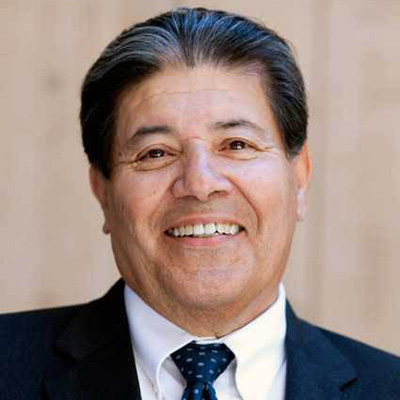Richard Ybarra

Alum Richard Ybarra attended SDSU in the 1970s, later on becoming involved in the Farm Workers’ Movement and the Environmentalist Movement. He is currently the president of the Ybarra Company on Public Affairs. Sharing over 30 years of leadership experience, Ybarra was able to offer valuable advice to help all of the SDSU community in promoting environmentalism and diversity!
Comparing the Times
Ybarra notes that there are similarities and differences between the time that he attended SDSU to now. He states, “Just like today there were issues in the world that we're changing our lives and things you had to pay attention to. Like in this moment, we are facing climate change and are in the middle of a pandemic.” As far as how we learn about these issues, it has changed significantly. He brings attention to the fact that we have 24/7 news that did not exist before. He says, “Today, there’s a thousand things you could know about and hear about”. While the frequency has increased, what we choose to pay attention to is now more important than ever.
He also shares how the biggest difference between the times is in the numbers. He sees that fewer people mobilize and get behind movements in person. “You see people who are smarter today and just as passionate, but during my time there was a greater number of people taking action steps behind those issues. If we could bring that same passion today, it would be like overnight.”
Activist
Although Ybarra has been a key figure in many movements, he avoids the tag activist. He sees that many people who identify as an activist are quick to join meetings and talk about the problem but not take action necessarily. He says, “If I'm going to do something, I am going to do it”. Ybarra also discusses how putting full effort into an ethical and meaningful movement can change your life. After he joined the Farmworkers’ Movement, he said that everything he learned from it and the experiences it gave him carried with him through the rest of his life.
“Young people who have leadership roles in anything that is important like climate change or political action need to learn to attach more energy, passion, and discipline. They need to lead by example. If you want to make something happen, you have to dedicate more time to it. There’s a lot of things competing for your energy, you just need enough people to help. You need the multiplication of people. Good organization multiples the right way. You need 4-5x more than you think is okay. Max out energy and effort all the time to give you the chance to be successful.” Ybarra shares that to increase these number, you must “Thank people a lot, make sure they feel welcome and want to come back. Little things that tell them they appreciate you goes a long way. We like to be part of winning and a bigger part of themselves.”
His Story
Ybarra started volunteering with the Farmworkers’ Movement in Coachella Valley alongside Cesar Chavez making $5 a week and lived there for years. The movement was centered around establishing workers’ right to organize, securing better pay, and improving work conditions on farms. Following their successes, his experience served as “a trajectory to more civic action and politics” for Ybarra’s next steps. Seeing the necessity for environmental change, his next role was the Deputy Director of Operations within the California Conservation Corp. CCC trains young people to work on the environment and serves as a funnel for people to get into other environmental work. During his time at CCC, the organization had planted millions of trees and had the first women fighting forest fires. Within two years under his management, “we grew from 60 young people to 1500” incorporating diversity and establishing that as a national model.
Diversity
Ybarra remembers how “Everything in forestry at the time was all white men, they were all related, and it was hard to get into forestry”. During the time that he was in the CCC leadership, Jerry Brown asked the organization to make the people involved in forestry look like California. “We had the first blacks, Latinos, women, Asians. We set this standard as the hiring pattern. 90% of staff and leadership went through the ladder we set up.” His team’s incorporation of diversity, equity, and inclusion set a standard that is long lasting.
Advice
Ybarra stresses the importance of involving the people around you in decisions and asking for feedback! “Some people push too hard to make sure outcomes take place when they see they are not, take a step back and take a deep breath and ask the people around you.” He also hits on the vitality of being humble and being able to understand that “we are all in this together and no one is better than anyone else.”
“Pay attention to your surroundings. Pay close attention to colleagues and friends, make sure you're looking out for them through bad times. Don't be afraid to ask for help when you need help. Be curious and follow your curiosity. When you find things you like to do, give it full speed. Give it passion and energy, follow your bliss and you cannot go wrong.”
If you have more questions, you can add Richard on LinkedIn.
